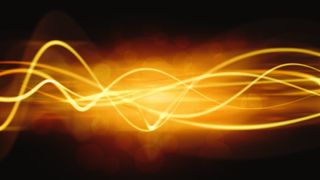
In their experiments, German physicists observed the dimensional crossover from one to two dimensions in a harmonically trapped gas of photons (light particles) and studied its properties.

Early analysis of the fragments has shown something equally rare. The meteorite is an aubrite, a class with unknown origins that some scientists argue may be pieces of the planet Mercury.

France and Germany are now calling on other EU countries to follow their lead in banning the controversial practice of culling male chicks, which both countries pledged to end from January 2022.

There are major links between climate change and extreme rainfall events like the one in northwestern Europe. A one-degree rise in temperature has the potential to give you a 7 % increase in the intensity of rainfall.

Germany will ban the use of the weedkiller glyphosate - the subject of billion-dollar U.S lawsuits over claims it causes cancer - from the end of 2023 and limit its use before then.

The Institute for Ethics in Artificial Intelligence will explore fundamental issues affecting the use and impact of AI and will ensure that AI treats people fairly, protects their safety, respects their privacy and works for them.

Germany should stop using coal for electricity production by 2038, a government-appointed commission said Saturday, laying out an 80-billion euro roadmap to phase out the polluting fuel.

Scientists in Germany have figured out a way to identify male eggs prior to hatching, which eliminates need for live culling.

Commuters in Germany now have a chance to ride the world's first hydrogen train as the country moves to replace old diesel-powered engines. Instead of exhaust fumes, hydrogen trains produce only water.

Less than a year after the world's largest X-ray laser launched in Germany it's showing promise for medical research. Researchers have published the first results: three-dimensional images of protein molecules.

A group of students from the Technical University of Munich taking part in the third SpaceX run Hyperloop Pod Competition have set a new speed record.

Germany has set a new record for renewable power production during the first six months of 2018.
The Wendelstein 7-X stellarator is close to hitting sustainable nuclear fusion (generating more energy than is initially required to start the reaction).

China, USA, Germany, India, Spain, UK, France, Brazil, Canada and Italy are the countries with the largest cumulative capacity according to the Global Wind Report for 2017.

The highest court in Germany has ruled that cities can ban older diesel vehicles immediately, paving the way for swift action against air pollution.